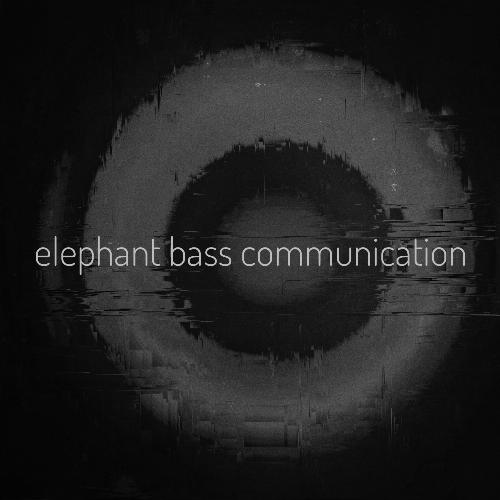Starving artists have been affected by more than just piracy and streaming royalties in their many complaints about the trajectory of music business in the digital age, songwriters and musicians regularly assert that music has been “devalued” or worse it have become a “commodity.”
Over the years they’ve pointed at two outstanding culprits. First, it was music piracy and the futility of “competing with free.” More recently the focus has been on the seemingly micro sized payments songs generate when they’re streamed on services such as Spotify or Apple Music.
These are serious issues, and many agree that the industry and lawmakers have a lot of work to do. But at least there is dialogue and progress being made toward new models for rights and royalties in the new music economy.
Less obvious are the other forces and trends that have devalued music in a more ways than the problems of hyper-supply and inter-industry jockeying. And by music I don’t mean the popular song formats that one sees on awards shows and hears on commercial radio.
When I hear songwriters of radio hits decry their tiny checks from Spotify, I think of today’s jazz artists who don’t even have a shot at a fraction of the old guard’s popular success. They can’t even imagine working in a music environment that might lead them to household name status of Miles Davis or John Coltrane. They are struggling against forces at the very nexus of commerce, culture and education that have conspired to make music less meaningful to the public at large. Here are some of the most problematic issues musicians are facing in the industry’s current landscape.
1. The Death of Context
Digital music ecosystems, starting with Apple’s iTunes, reduced recordings down to a stamp-sized cover image and three data points: Artist, Song Title, Album. As music commentators have long argued, these systems do a poor job with composers, conductors, soloists and ensembles in the less popular genres and its limits discovery after all I have to know basically what it to select it from this limited information.
While there are capsule biographies of artists and composers in most of the services, historic albums are sold and streamed without the credits or liner notes of the LP and CD era. The constituency of super-fans who read and assimilate this stuff is too small to merit attention from the digital services or labels, but what’s lost is the maven class that infuses the culture with informed enthusiasm and these are the very people that we need to reach as they both the taste makers and influencers. This environment of digital is failing to inspire such fandom, and that’s profoundly harmful to our shared idea about the value of music.
2. Commercial Radio
It’s an easy target, but one can’t overstate how profoundly radio changed between the explosion of popular music in the mid 20th century and the corporate model of the last 30 years. An ethos of musicality and discovery has been replaced wholesale by a cynical manipulation of demographics and the blandest now rules, wait a minute to you now have to change the station to change the genre.
Playlists are much shorter, with a handful of singles repeated incessantly until focus groups say quit. DJs no longer choose music based on their expertise and no longer weave a narrative around the records. As with liner notes, this shrinks the musical diet of most Americans down to a handful of heavily produced, industrial-scale hits, I put it this way it like eating a vanilla marsh mellow all the time, eventually you crave a different flavor but nothing it available so you drop back to the same marsh mellow, ugh!!!!
3. The Media
In the the late 1950s, when I was born, mainstream print publications took the arts seriously, covering and promoting exceptional contemporary talents across all styles of music. Thus did Thelonious Monk wind up on the cover of TIME magazine, for example. Now thanks to a world that is driven by industry metrics (chart position and concert ticket sales) this is what drives the selection of all stories in what few print publications are left and it also drives the selection completely within the digital media allowing it to became simply driven by measured clicks in the always-on focus grouped echo chamber of pop music it both stultifying and discouraging meaningful engagement with anything that constitutes art music.
4. Conflation
A little noticed but corrosive quirk of the digital age is the way our interfaces conflate music with all other media and entertainment choices. iTunes started it by taking software ostensibly for collecting and playing music and morphing it into a platform for TV, film, podcasts, games, apps and so on.
The shiny displays distracting people away from “just” music are already ubiquitous. I believe that one reason vinyl and phonographs are hot again is that musically oriented people crave a device that is for music only.
5. Movies & Games
We as a culture do hear quite a lot of composed instrumental music, but it has migrated from the concert hall to the video game and movie score. On one hand, that’s given young composers options to make a living, and some very good music is being imagined for these imaginary landscapes.
But there’s a pernicious effect of the ubiquitous media sound track, in that whole galaxies of musical ideas and motifs and moods have been essentially dropped from the world when was the last time you hear on any media something could be described as jazz or even something as simple as a folk song.
How does a young person steeped in s war game soundtrack hear real music and seek to find out who the composer was and what else has he or she written, the short answer is they don’t even notice the music its simply there.
This is rarely remarked on, but I believe that thousands of cumulative impressions of background music assigned to “romance” and “grief” and “heroism” have laid down layers of scar tissue damaging our ability to feel anything at all.
7. Music in Schools
Now let me climb on my soapbox now…It all begins, or ends here. Like any other language, the rules and terms and structure are most readily absorbed by the young. And anything that resembles a music program has been cut from more than half the grade schools in the US in a long, grinding trend, the push back has been based increasingly on evidence about music education’s ripple effects on overall academic performance.
The ‘music makes kids smarter’ argument. This is true and vital, but we tend to lose sight of the case for the value of music in our culture — that not only does it make kids smarter but this music education makes kids more musical. Those who internalize music’s rules early in life will be more likely to attend concerts and bring a more astute ear to their music choices as adults.
Those who care about the future of the music business ought to spend less time complaining about the issues in the digital space and expend more energy lifting up the public’s awareness of music, because we truly do devalue music when we reduce the most impactful art form to an artifact of celebrity. Complex instrumental music has become marginalized to within an inch of its very existence, and that has a lot to do with industry folk defining “value” in terms of only the way that affects their mailbox money.
Hey world its time to care…

















a good article that outlined well the factors affecting music makers today.